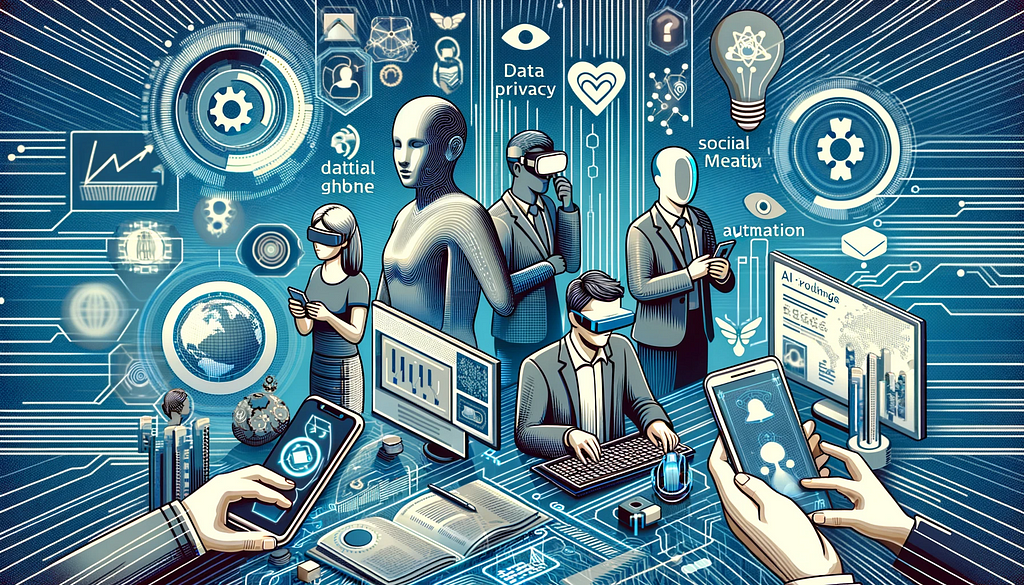
In the modern era, technology has become an integral part of our lives, permeating every aspect of society. From artificial intelligence to social media, technology shapes the way we communicate, work, and even think. However, as technology advances, so too do the ethical challenges associated with it. The rapid evolution of technology presents new dilemmas that challenge traditional ethical frameworks and demand novel approaches to understand and mitigate potential harms. This article explores the ethical implications of technology in various domains and how society can navigate these challenges.
The Changing Landscape of Privacy
Digital Footprints and Data Security
In the digital age, privacy concerns are paramount. Individuals leave behind digital footprints with every online interaction, from social media use to online shopping. This data, often collected without explicit consent, can be used in ways that infringe on personal privacy. Examples abound of data breaches and misuse, from the Cambridge Analytica scandal, where data from millions of Facebook users was used for political advertising, to frequent incidents of personal data being stolen and sold on the dark web.
Surveillance and Big Data
Moreover, the rise of surveillance technology and big data analytics has enabled governments and corporations to monitor individuals at an unprecedented scale. Technologies like facial recognition are being employed in public spaces, often without adequate regulation or oversight, raising concerns about the erosion of civil liberties.
Ethical AI and Automation
Bias in Artificial Intelligence
Artificial intelligence (AI) and machine learning algorithms are increasingly used in decision-making processes, from hiring to healthcare. However, these technologies can perpetuate and amplify biases present in their training data. For instance, several facial recognition systems have been shown to have higher error rates for people of color, and AI used in recruiting has been found to favor male candidates over female candidates.
The Impact of Automation on Employment
Automation presents another ethical challenge. While it can increase efficiency and reduce costs, it also poses a significant threat to job security. The automation of routine jobs has the potential to displace a large segment of the workforce, raising questions about economic inequality and the need for social safety nets.
Social Media and Mental Health
The Influence on Youth
Social media platforms have a profound impact on mental health, particularly among young people. Studies have linked excessive social media use to increased rates of anxiety, depression, and poor sleep quality. The pressure to maintain a certain image and the constant comparison with others can lead to diminished self-esteem.
Misinformation and Polarization
Furthermore, social media has become a breeding ground for misinformation and has contributed to the polarization of society. The spread of fake news and the echo chamber effect, where individuals are only exposed to information that reinforces their existing beliefs, can have serious consequences for democratic processes and social cohesion.
The ethical challenges posed by technology in the 21st century are complex and multifaceted. They require a collaborative effort among technologists, ethicists, policymakers, and the public. Developing ethical guidelines and regulations that keep pace with technological advancements is crucial. Additionally, fostering digital literacy and critical thinking skills can empower individuals to navigate the digital world more safely and responsibly. As technology continues to evolve, it is imperative that ethical considerations remain at the forefront of the conversation, ensuring that the benefits of technology are balanced with the protection of individual rights and societal values.
Ethics in the Age of Technology was originally published in EpicurusEcho on Medium, where people are continuing the conversation by highlighting and responding to this story.